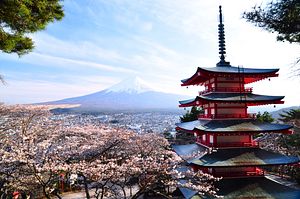As official Washington prepares for the late April visit of Japanese Prime Minister Shinzo Abe and his scheduled address to a joint session of Congress, many aspects of the bilateral relationship between the United States and Japan will rightly be feted, including a robust strategic alliance and significant economic ties between the two nations. The visit also presents an opportunity to consider a less discussed but increasingly important aspect of the U.S.-Japan relationship writ large: The extensive – and growing – network of American alumni of Japan’s long-standing Japan Exchange and Teaching (JET) Program.
Since 1987, the JET Program has recruited thousands of college-educated young people from more than 60 countries, including the United States, to work in Japan. Participants work as assistant language teachers, coordinators for international relations, or sports exchange advisors for tenures of a year or more in communities across the Japanese archipelago. Now, almost thirty years after the program’s founding, there are approximately 60,000 JET Program alumni worldwide, with Americans making up roughly half that number.
American alumni, armed with a nuanced understanding of Japan and an appreciation for the importance of the relationship between the United States and the country that served as a welcoming host during a formative period in their lives, are now scattered across the American landscape. They work in institutions of higher education, the entertainment industry, grant giving foundations, large corporate entities, policy oriented think tanks, major media organizations, the U.S. government, and elsewhere. And they increasingly hold positions with the potential to influence how Americans and many of the United States’ leading institutions both think about and act toward Japan.
This is not cause for alarm. My research indicates that although alumni have increased familiarity with Japan, this does not translate into an automatic pro-Japan bias. Instead, it leads to bilateral public goods such as heightened cross-cultural understanding, more informed approaches to Japan in the policy realm, and more nuanced interpretation of behaviors in times of tension. Having a cadre of thousands of college-educated people with well-informed opinions about Japan helps build interest in, and support for, the U.S. relationship with Japan and its place at the fulcrum of the American foreign policy pivot toward Asia.
Although JET alumni do not necessarily view Japan through rose-colored glasses, they do report feeling a continued attachment to that country even years after having returned home. This was demonstrated in dramatic fashion following Japan’s devastating 2011 earthquake when the American alumni community raised almost $90,000 in support of relief efforts for stricken areas. As I noted in a commentary at the time, “If the goal of a country’s public diplomacy efforts is to build connections with citizens of other countries in hopes of promoting and maintaining relationships for the long term, then JET can surely be counted as a success.”
Joseph Nye and others have commented on the soft power potential of the JET alumni community. And the influence of this vast network of college-educated people with on-the-ground experience in Japan was not lost on former Secretary of State Hillary Clinton who, in speaking of the only two Americans – both JETs – to have perished in Japan’s 2011 earthquake, praised the generosity of the alumni community, emphasizing the value of the exchange program. More recently, the Japan Association of Corporate Executives (Keizai Doyukai) has created the Project Team for Empowerment of Japan Hands to promote the recruitment of JET alumni for Japanese companies. A director of that organization has been explicit about the benefits of JET alumni for Japan’s private sector, saying “We believe that [JET Program alumni] are extremely important human assets for Japan in terms of international exchanges as well as meeting the needs of Japanese companies.”
As recent public opinion numbers suggest, the American public is favorably disposed toward Japan. American JET alumni are even more so. In my survey of alumni, respondents reported very warm feelings toward Japan, with an average “feeling thermometer” ranking of 85, an impressive approval rating and an indicator that as alumni return home and become reintegrated into American society, they are bringing positive views of Japan with them.
Of course this translates into encouraging friends and family to visit Japan, eating Japanese food, following news about Japan in the media, and consuming Japanese cultural products. But the large population of American JET alumni is increasingly positioned to do more than just boost travel to Japan or to raise rates of sushi consumption in the United States. Alumni engage in official government negotiations, guide their organizations toward more considered decisions regarding Japan, teach new generations about Japan and its place in the world, and just generally act as goodwill ambassadors for Japan in the United States. Taken as a whole, the JET Program is a “win” for both countries.
As Abe’s visit to the United States approaches, it is indeed worth celebrating the fact that “the biggest antagonists in the Pacific War have forged a prosperous postwar system and a vigorous alliance.” Increasingly, the JET Program and its thousands of alumni in the United States deserve to be seen as part of that impressive bilateral record.
Dr. Emily T. Metzgar is an associate professor in The Media School @ Indiana University and an alumnus of the JET Program. She is writing a book about American JET alumni and their growing influence on the US-Japan relationship.

































